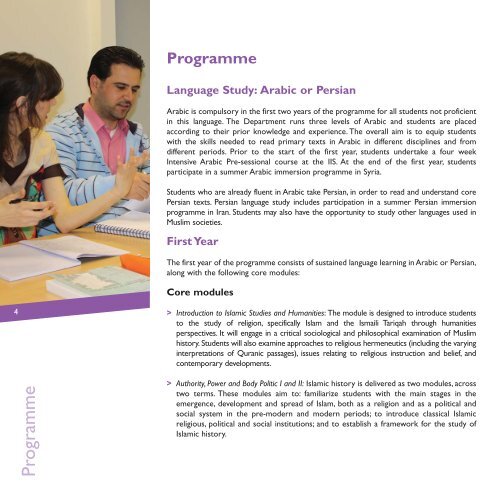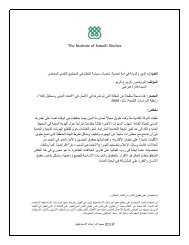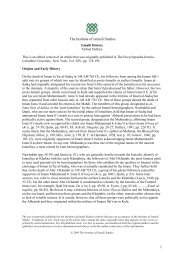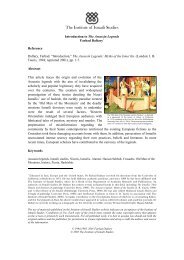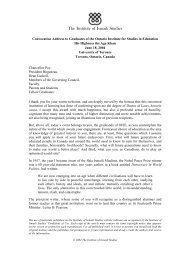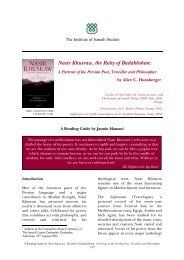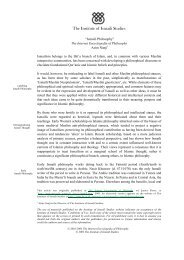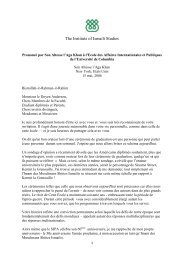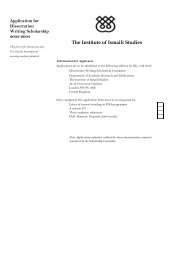GPISH prospectus 2011_Layout 1.qxd - The Institute of Ismaili Studies
GPISH prospectus 2011_Layout 1.qxd - The Institute of Ismaili Studies
GPISH prospectus 2011_Layout 1.qxd - The Institute of Ismaili Studies
Create successful ePaper yourself
Turn your PDF publications into a flip-book with our unique Google optimized e-Paper software.
Programme<br />
Language Study: Arabic or Persian<br />
Arabic is compulsory in the first two years <strong>of</strong> the programme for all students not pr<strong>of</strong>icient<br />
in this language. <strong>The</strong> Department runs three levels <strong>of</strong> Arabic and students are placed<br />
according to their prior knowledge and experience. <strong>The</strong> overall aim is to equip students<br />
with the skills needed to read primary texts in Arabic in different disciplines and from<br />
different periods. Prior to the start <strong>of</strong> the first year, students undertake a four week<br />
Intensive Arabic Pre-sessional course at the IIS. At the end <strong>of</strong> the first year, students<br />
participate in a summer Arabic immersion programme in Syria.<br />
Students who are already fluent in Arabic take Persian, in order to read and understand core<br />
Persian texts. Persian language study includes participation in a summer Persian immersion<br />
programme in Iran. Students may also have the opportunity to study other languages used in<br />
Muslim societies.<br />
First Year<br />
<strong>The</strong> first year <strong>of</strong> the programme consists <strong>of</strong> sustained language learning in Arabic or Persian,<br />
along with the following core modules:<br />
Core modules<br />
4<br />
Programme<br />
> Introduction to Islamic <strong>Studies</strong> and Humanities: <strong>The</strong> module is designed to introduce students<br />
to the study <strong>of</strong> religion, specifically Islam and the <strong>Ismaili</strong> Tariqah through humanities<br />
perspectives. It will engage in a critical sociological and philosophical examination <strong>of</strong> Muslim<br />
history. Students will also examine approaches to religious hermeneutics (including the varying<br />
interpretations <strong>of</strong> Quranic passages), issues relating to religious instruction and belief, and<br />
contemporary developments.<br />
> Authority, Power and Body Politic I and II: Islamic history is delivered as two modules, across<br />
two terms. <strong>The</strong>se modules aim to: familiarize students with the main stages in the<br />
emergence, development and spread <strong>of</strong> Islam, both as a religion and as a political and<br />
social system in the pre-modern and modern periods; to introduce classical Islamic<br />
religious, political and social institutions; and to establish a framework for the study <strong>of</strong><br />
Islamic history.


